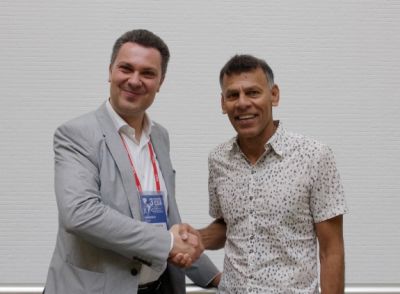ETUC and CLC statement on CETA
MORE DEMOCRACY FOR A FAIR AND PROGRESSIVE TRADE AGENDA
The failure of the signature of CETA and the consequent postponement of the EU-Canada Summit show that our concerns were right and shared by local and national politicians, and that the deal cannot be ratified unless the flaws in CETA are fully addressed.
This is the result of a negotiation process that was conducted in secrecy. We believe that this situation could have been avoided if the negotiating parties had consulted trade unions and civil society in a serious way and made negotiations more transparent right from the beginning. Only after the negotiations were finished was the complete negotiated text published – at which point we were told CETA was no longer open for debate and amendments.
Even after the new government in Canada negotiated changes to the investment dispute settlement mechanism, we were again told that CETA was not open for amendments. This radical stance changed in the past few weeks to try to accommodate the concerns of some countries, and ultimately of the Parliament of Wallonia, showing that if there is political will, there is still the opportunity to improve the Agreement.
We also take note of discussions on a joint declaration (that now seems to be called a join interpretative instrument) by the Commission and the Canadian Government, the aim of which is to help in clarifying controversial parts of the Agreement. However, it is the strong view of the ETUC and CLC that this has come too late and in a very limited time frame to be discussed properly. There has been again a lack of consultation with trade unions.
In our view, any Declaration or Instrument, to be effective and make a difference against the text of CETA, must be legally binding, having a real impact on the most controversial parts of the agreement, and fully address major concerns that the CLC and the ETUC jointly outlined months ago, notably on enforcing labour rights, fully protecting public services and public procurement, addressing environmental issues, and rejecting investors clauses.
To regain the trust of European citizens and workers, and if the European Commission and the Canadian Government sincerely want this agreement to become a good and progressive standard for trade agreements, it is time now to restart a transparent negotiating process aimed at introducing in CETA binding and enforceable provisions that can really address and resolve the concerns that ETUC and CLC have raised, including the privileged status that investors get with the Investment Court System (ICS), that stands in sharp contrast to the very mild labour standard provisions which have no enforcement mechanisms.
The ETUC and CLC ask the European Commission, the Canadian Government, and the EU Member States to open the negotiations to democratic consultation of trade unions and civil society, in order to ensure the necessary changes are introduced to address existing concerns, as a trigger for a fair and progressive agenda for trade agreements at global level.
The ETUC and CLC condemn the pressure made on Wallonian institutions, to block more democratic and transparent negotiation.

